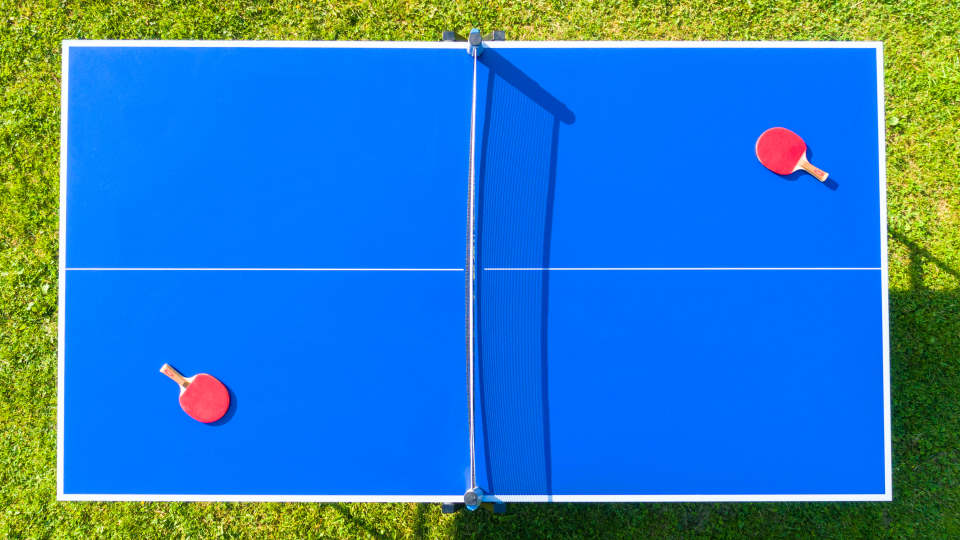Introduction
Sportsmanship is when participants and spectators behave respectfully. Young athletes must develop good sportsmanship by being fair and ethical to teammates and opponents. Sportsmanship applies to bleacher-watchers and sideline coaches. Aggression is often part of the game; therefore, sportsmanship doesn’t imply being soft. Being a good sport means being nice and respectful throughout games.
Being polite isn’t sportsmanship. Sportsmanlike conduct requires a few attributes. One of the ways to show good sportsmanship is by assisting. When losing, don’t blame your teammates. In team sports, being a team player is key when assistance is crucial. In a game, everyone tries to win. Positivity. Negative attitudes may pull down the entire team and make competing less exciting.
Childish or improper conduct may make athletes seem immature. Positivity is vital in team sports. Respect. Respect others, win or lose. Avoid passive-aggressive or disrespectful behavior. Even if you accuse someone of cheating, angry statements might ruin your reputation and others’ esteem.
Learn. Instead of blaming the loser, learn from your errors. If you make many forced mistakes in tennis, try returning the hardest balls. If you hit several backhands into the net, practice that technique to improve. Self-control. Players should constantly manage their emotions and concentrate on the game. Damaging equipment or surfaces is a terrible sport move that may shame teammates.
What Are 5 Examples of Good Sportsmanship?

Winning isn’t everything in sports. Small but significant displays of sportsmanship that transcend team lines and startle the bleacher spectators are often the most memorable. True Jesse Owens story. 2005 England defeated Australia by two runs. Freddie Flintoff comforted Brett Lee as the crowd and team cheered. This photograph of a nice act of sportsmanship is one of the most memorable sports pictures ever, and it influenced the players and everyone who saw it.
Liverpool’s star scorer claimed he wasn’t fouled by David Seaman in a 1997 Premier League encounter at Highbury. The referee persisted on a penalty kick, so Fowler blasted a poor effort straight at Seaman. Later, FIFA praised him.
Nigel Mansell and Ayrton Senna, Mansell’s adversary, were in tight battle 59 laps into the Formula 1 Championship race. Senna ran out of gas with 10 laps left, and Mansell won. On his victory lap, Mansell picked up Senna, who was stranded on the track and walking back to the pits. Two adversaries’ sportsmanship was unexpected and heartwarming.

In New Zealand’s 2003 Test Match with Wales, Captain Colin Charvis made a dash for the try line that was abruptly halted by All Blacks back row Jerry Collins. Tana Umaga spotted Charvis’ condition and ran to help him. He removed his gum shield and had him rest until aid arrived. Umaga won a medal and a statuette for his sportsmanship.
Pete Goss displayed great sportsmanship on Christmas Day 1996. Halfway into the round-the-world Vandee, he got a mayday warning that a competitor’s boat had been wrecked in the Southern Ocean and needed aid. Goss instantly abandoned the race to rescue Dinelli. Despite his boat being knocked down many times, he found himself with an Australian Air Force Plane. Since France awarded him the Legion d’Honneur, the two have become close. As seen in the examples, how to show good sportsmanship is quite simple.
What’s Another Word for Sportsmanship?

Gentle is one of the words that can be used instead of the word sportsmanship. Apart from this, the meaning of the word “kind” also has a connotation. A nice individual isn’t abrupt. They’re polite, calm, and respectful. Hurrying, being rude, or acting violently is unnecessary. Gentleness emanates peaceful assurance. This confidence comes from accepting the world and what it brings from a peaceful, serene mind. Handling these problems shows a hidden inner power.
We nurture, educate, and comfort our children when they scratch a knee. This tenderness will be powerful against anybody who hurts our children. We believe supporting them is right and necessary. It’s born of love and the belief that safeguarding children is important. Calmness is a powerful method for reversing the effects of our upbringing and making necessary changes in our daily lives. Through experience, we learn to be harsh and hard, numb to our true nature and true selves, which are soft, sensitive, and kind.
When we reacquaint ourselves with kindness, we might start to see how we have become harsh and harsh to ourselves and others. To the extent that one grows and learns to recognize the sensation of gentleness, everything that is not kind becomes strikingly obvious.
This facilitates our awareness of the difference between kind and compassionate actions and those that are not. From this place of knowing and inhabiting our gentleness, we can confidently say no to anything that threatens to upend or undermine that sensation.
Being gentle is the first and most crucial step in re-connecting with our true selves, our natural way of being, and the knowledge that at our core, we are soft, loving, and extremely delicate—even though our culture has conditioned us to be harsh and aloof from our hearts.
Which Practice Isn’t Good Sportsmanship?

We’ve all seen unsportsmanlike conduct during the broadcast and live athletic events. We may have seen terrible sportsmanship when playing sports. Unsportsmanlike conduct is taunting. Ridiculing other athletes or staff is disrespectful and uncalled for. Mid-game exit. This is disrespectful and may leave your personnel stranded. Improving. Scoring goals only to score goals while your team is winning is selfish and undiplomatic—loser sourpuss. Nobody always wins.
While we don’t condone cheating, Rosie Ruiz’s 1980 Boston Marathon performance was spectacular. In the days before police escorts and camera surveillance, Ruiz rode the T to within a half mile of the finish line before she “won” the race. Ruiz established the women’s marathon record before her hoax was revealed.
Maradona’s goal in Argentina’s 2-1 quarterfinal triumph against England in the 1986 World Cup may be one of the most memorable individual performances in soccer history. Maradona’s 51st-minute header may be the century’s most infamous since he pushed the ball into the net, missing his head entirely. A potential red card helped Argentina beat England and win the World Cup.
The Bulls were good without Michael Jordan. Scottie Pippen finished third in 1994 MVP voting, earning the All-NBA First Team. He guided the Bulls to 55 victories and is “the guy” in Chicago’s playoffs. Pippen declined to join the game as Phil Jackson set out the final play for rookie Toni Kukoc. Jackson’s choice was validated when Kukoc made the shot, but it was a surprising moment from a team-first guy.
Michael Jordan’s competitiveness is well-known. It made him the best player and helped the Bulls win six NBA championships. Steve Kerr learned it wasn’t always good for MJ. At a particularly heated training camp session, Kerr retaliated against Jordan’s trash language. Misstep. Jordan hit Kerr, and it was over. Jordan apologized to Kerr before he went home, and the two became friends.
How Can We Apply Sportsmanship in the Workplace?

You heard that sportsmanship is vital if you played sports as a kid. Many people tell their kids the same thing. Why do sports players, even 5 and 6-year-olds, need decent sportsmanship while corporate executives don’t? Friendly competition is one example. Leadership books suggest internal rivalry is harmful to an organization’s culture. This idea has eliminated competitiveness in tiny league sports.
When 1st, 2nd, and 3rd place trophies are replaced with “participation awards” in the minor league, the game loses its sense of accomplishment. On one side, corporations strive to reduce competition, while many CEOs prefer a competitive spirit in new hires and company leaders.
Keeping staff motivated requires a feeling of purpose, fueled by a competitive attitude for many professionals. Participation awards in business and sports breed mediocrity. An internal competition with excellent sportsmanship may fire up workers, inspire a drive to achieve bigger outcomes, and push each other out of their comfort zone.

Good business sportsmanship is using a challenge to become more disciplined and effective. Their success fuels them. Business sportsmanship is just as important as in athletics. Here are some ways a corporate leader may promote good sportsmanship: Recognize business sportsmanship. Require sportsmanship. Bad sportsmanship shouldn’t define your competitive culture.
Competitiveness helps individuals push themselves every day. The drive to win. Everyone has it, but others have lost the fire because they began feeling they weren’t competent or deserving of winning or reaching a goal; they feel wounded or offended by the competitive climate.
Good sportsmanship entails striving for excellence, being the greatest, never giving up, and celebrating the triumphs of peers. When we lose, we’re not envious; we’re motivated to strive harder and do better next time. Winning is fun at any age. Win with sportsmanship.
Why Is Sportsmanship Highly Valued?

Anyone playing a sport must take personal responsibility and follow the rules and anticipated behavior. Sportsmanship. Follow the sport’s regulations. Each sport’s governing body develops and enforces these rules. Rules ensure safe, fair play. If players don’t respect the rules or referees, they’re fined. Informal or modified activities frequently include self-made rules. Adapting the regulations may make the sport more accessible, fair, and safe.
Sport has unwritten norms or conventions to maintain respect and fairness. These promote ‘game spirit’ They demand participants to respect and be fair, not merely avoid regulations actively. Etiquette includes recognizing tennis or shaking hands with opponents before and after a football game, regardless of the score. Doping is using illegal or performance-enhancing medications like anabolic steroids. Doping threatens athletes’ health and fairness.
While there are stringent methods to combat doping in sports, every athlete must be clean. Every substance that enters their bodies is their responsibility. Anti-doping relies on sportsmanship. Sportsmanship is vital to most athletes and parents. Everyone may provide instances of sportsmanship and what it means to be a “good sport” Before and after games, we shake hands, applaud the wounded players, and assist an opponent up. These examples hardly cover proper sportsmanship.
Sportsmanship is fair play, ethical conduct, honesty, and goodwill toward an opponent. It shows an athlete is disciplined enough to have perspective, retain calm, and help teammates. The “moment of truth” and stressful circumstances reflect a player’s character and sportsmanship. Sportsmanship is optional.
Despite our best efforts, we can’t always win. We must accept defeat. After a hard-fought loss, it’s hard to look your opponents in the eye and say, “nice game.” Athletes must do this. How to lose with dignity? Youth sports teach. Even shortly after that, a few victories and defeats are remembered. Accept the defeat. Congratulation winners! Some opponents were better.
Conclusion

Respect is the foundation of good sportsmanship. A good athlete treats teammates and opponents equally. Teamwork. In team sports, try to incorporate everyone. Don’t hoard the ball. This may be difficult if you’re better than your teammates and might win the game yourself. Selfish play destroys everyone’s enjoyment and makes you appear like a jerk. Why are you playing? Is it for self-esteem? Or just to play? You want your teammates to have fun too when it’s the latter.
If you want how to show good sportsmanship, you must be positive. When things go wrong, it’s easy to become gloomy. A guy stays cheerful while his team is losing. Keep cheerful if a teammate messes up. Berating him just makes him feel worse. Instead, smack him on the back, advise him to shake it off, and provide counsel.
The best way how to show good sportsmanship is through resolution. Sport has champions and losers. You’ll occasionally lose. Accepting this sooner will make losing easier. Don’t pout, tantrum, or weep when you lose. Give the winning team a handshake. Don’t blame your teammates or officials. After the game, show leadership by pep-talking your squad. Mention what went well and what needs improvement. That’s better than telling your first baseman he sucks.


